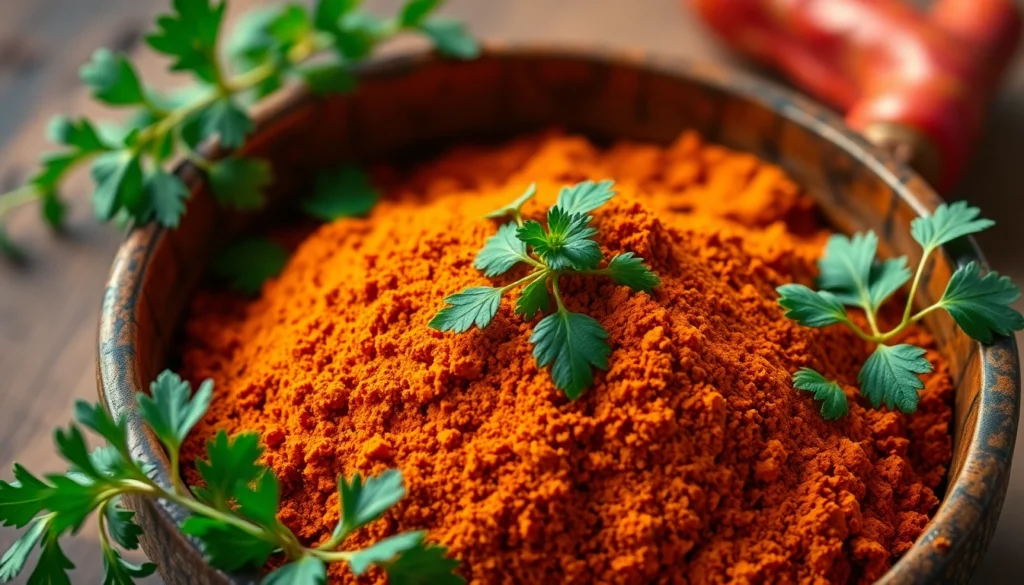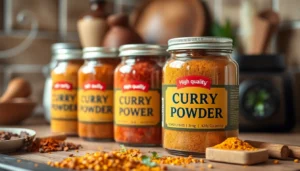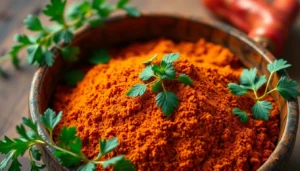Premium Curry Powder: Elevate Your Cooking with Authentic Flavors and Quality

Unlocking the Rich World of Curry Powder: The Essential Spice Blend for Authentic Flavors
Curry powder is one of the most recognizable and versatile spice blends used worldwide, cherished for its complex aroma, vibrant color, and ability to transform ordinary dishes into culinary masterpieces. As a cornerstone in many kitchens, especially in Indian, Southeast Asian, and Caribbean cuisines, curry powder embodies a blend of tradition, culture, and flavor. For food manufacturers, exporters, and home cooks aiming to elevate their culinary creations, understanding what makes a high-quality curry powder is paramount. At Curry Powder suppliers such as Spice Nest, guaranteed authenticity, premium quality ingredients, and adherence to rigorous manufacturing standards ensure an exceptional product.
Introduction to Curry Powder and Its Culinary Significance
What Makes a Quality Curry Powder?
A superior curry powder begins with selecting the finest spices—rich turmeric, aromatic coriander, earthy cumin, and vibrant fenugreek are foundational. After harvesting, these spices are meticulously cleaned, roasted, and ground to maximize their flavor profiles. Quality curry powders are characterized by their freshness, balanced spice ratios, and vibrant color that reflects the authentic ingredients used. The process of manufacturing from reputable companies like Spice Nest involves strict quality control measures, ensuring consistent flavor, purity, and safety. Certifications from international food safety standards such as ISO, HACCP, and Organic Certifications further guarantee the authenticity and quality of the product.
History and Cultural Roots of Curry Spices
Historically, curry spices trace their origins to the Indian subcontinent, dating back thousands of years. The term “curry” itself, derived from the Tamil word “kari,” signifies a spiced sauce or gravy. Over centuries, Indian cuisine spread globally, blending with local flavors and resulting in diverse curry variations. For instance, the Indian masala blends differ regionally—South Indian, North Indian, and Rajasthani styles each incorporate unique spice ratios. The British colonial influence popularized “curry powder” as a convenient, blended spice mix, leading to its worldwide recognition. Modern curry powders often reflect these historical influences, blending tradition with innovation.
Key Variations of Curry Powder in Global Cuisine
The global palate has embraced an array of curry powders tailored to regional tastes. For example, the Malay-style “Rendang” uses a fiery blend with added chili, while the Jamaican curry includes allspice and thyme, giving it a distinctive aroma. Thai curry powders emphasize galangal, lemongrass, and kaffir lime leaves, resulting in a fragrant and fresh flavor profile. Western adaptations tend to be milder, often emphasizing turmeric and coriander. Recognizing these variations allows chefs and manufacturers to select the appropriate curry powder for specific dishes, ensuring authentic flavors and customer satisfaction.
Choosing the Right Curry Powder for Your Recipes
Factors to Consider: Freshness, Authenticity, and Flavor Profile
When selecting a curry powder, freshness is crucial as spices quickly lose their aromatic potency. Opt for products from reputable manufacturers like Spice Nest, which emphasizes fresh grinding and packaging. Authenticity is reflected by the origin of the spices and the adherence to traditional recipes. The flavor profile—ranging from smoky, sweet, hot, to mild—should complement the intended dish. For instance, a hot curry powder is ideal for spicy dishes, while a milder blend suits delicate poultry or vegetable stews.
How to Identify High-Quality Curry Powder in Markets
High-quality curry powder exhibits vibrant color, a strong aromatic scent, and a balanced spice blend without any bitter or off-putting notes. Look for products that comply with international quality standards, display clear ingredient lists, and are certified organic or HACCP compliant. Avoid powders with artificial additives, preservatives, or excessive fillers. Certifications from recognized bodies add credibility, and purchasing directly from trusted manufacturers like Spice Nest ensures authenticity.
Matching Curry Powder Variants with Dish Types
Different dishes require specific types of curry powder. For example, use a mild, turmeric-rich curry powder for mild vegetable curries, while opting for a hotter, chili-infused blend for meat-based or seafood dishes. For soups and stews, consider a balanced, aromatic powder that enhances depth without overpowering. Creating custom blends at home is possible by mixing various curry powders, but sourcing high-quality variants ensures consistency and authentic flavor every time.
Effective Usage and Recipes Using Curry Powder
Cooking Tips for Optimal Flavor Extraction
To maximize flavor, spice techniques matter. Toast curry powders lightly in oil before adding other ingredients—this process, known as “blooming,” releases essential oils and amplifies aroma. Use good-quality oil, such as mustard or ghee, to facilitate this process. Incorporate curry powder during the initial stages of cooking to allow the flavors to meld, or towards the end for a fresher taste. Be cautious with quantities—start with small amounts and adjust to suit taste. Proper timing and heat control prevent burning and bitterness.
Popular Dishes Enhanced by Premium Curry Powder
From creamy chicken curry to hearty vegetable stews, curry powder enhances a wide spectrum of dishes. Examples include Indian butter chicken, Thai yellow curry, Caribbean goat curry, and even fusion recipes like curry-flavored pasta. Using high-grade curry powder consistently results in richer, deeper flavors and authentic tastes that impress diners.
Creating Your Own Curry Blends at Home
For culinary enthusiasts, crafting personalized curry powder blends allows customization of heat, aroma, and flavor nuances. Key ingredients include turmeric, coriander, cumin, fenugreek, ginger powder, chili powder, and black pepper. Experiment with ratios, adding spices such as cinnamon, cardamom, or nutmeg for complexity. Store your blend in airtight containers away from direct sunlight to preserve freshness.
Health Benefits and Nutritional Aspects of Curry Powder
Anti-inflammatory and Antioxidant Properties
The health benefits of curry powder extend beyond its flavor. Curcumin, the active compound in turmeric, has potent anti-inflammatory and antioxidant effects, helping reduce inflammation and fight oxidative stress. Cumin and coriander also provide digestive aids and immunomodulatory benefits, making curry powder a flavorful health booster.
Incorporating Curry Powder into a Balanced Diet
Integrate curry powder into various meals—soups, rice dishes, marinades, and smoothies—to leverage its nutritional perks. Pair with fresh vegetables, lean proteins, and whole grains for balanced nutrition. Focus on moderation and quality to avoid excessive intake of salt and additives, especially when using store-bought blends.
Allergy Considerations and Dietary Restrictions
While curry powder is generally safe, individuals with spice allergies or sensitivities should review ingredient labels, particularly for blends containing mustard, cumin, or chili. For those with dietary restrictions, look for organic and additive-free options from verified suppliers like Spice Nest to ensure safety and allergen transparency.
Where to Source and Purchase Authentic Curry Powder
Trusted Manufacturers and Exporters in India
India stands as the global hub for high-quality spice manufacturing, with companies like Spice Nest leading the industry. These manufacturers offer premium, authentic curry powders backed by extensive certifications, stringent quality controls, and export experience. Their presence at major food exhibitions worldwide highlights their commitment to quality and international standards.
Certifications and Quality Assurance
Look for certifications such as ISO 22000, HACCP, Organic, and Fair Trade to ensure product purity and safety. Reputed exporters maintain traceability and provide comprehensive quality assurance reports, providing confidence in every batch.
Buying Tips for Bulk and Retail Purchases
For bulk purchasing, establish direct trade relationships with certified manufacturers like Spice Nest to secure competitive pricing and consistent quality. Retail consumers can prefer sealed, date-coded packaging sourced from reputable outlets or online platforms. Always verify packaging integrity and certification labels before purchase.




